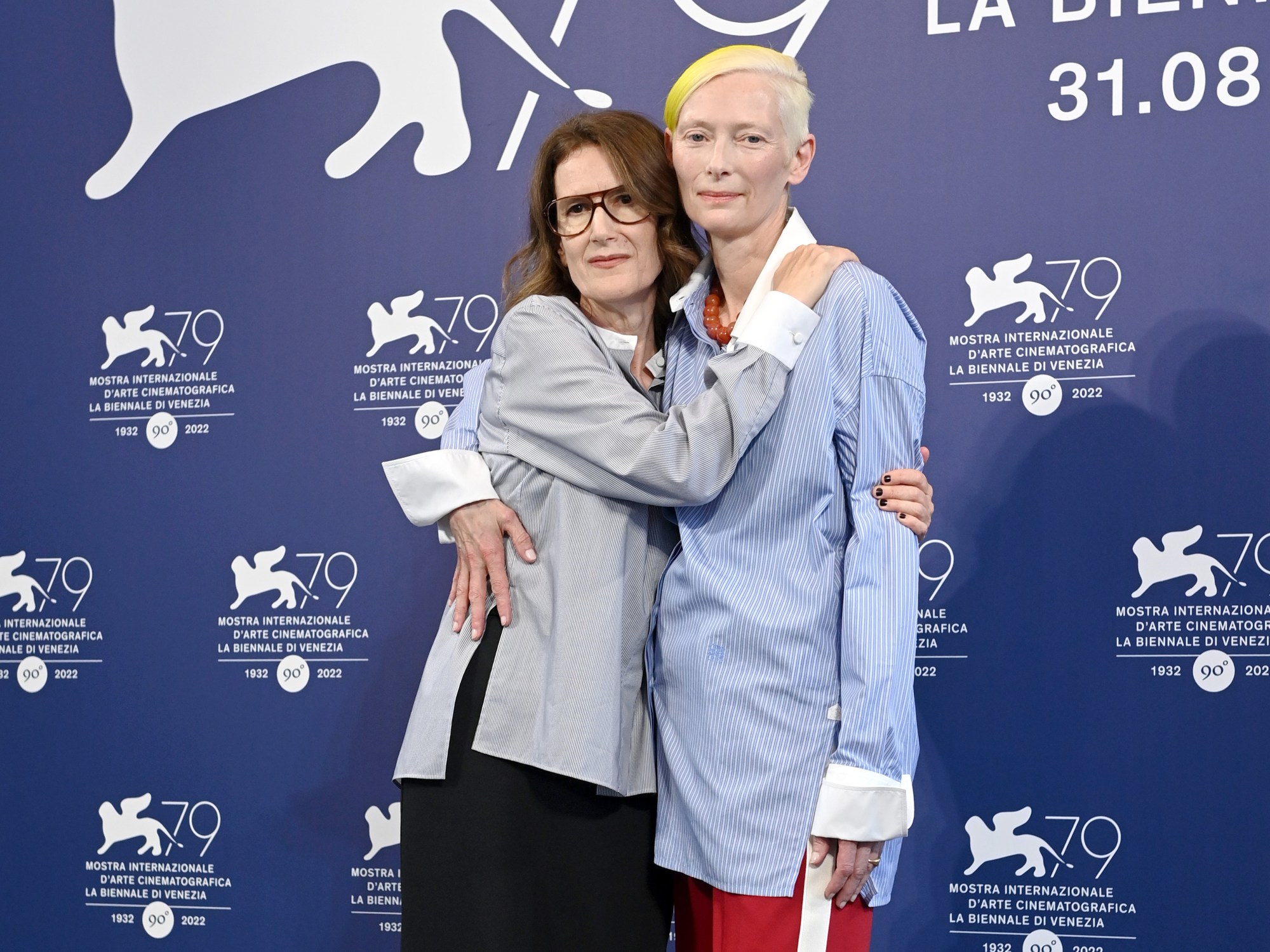
- Festivals
“The Eternal Daughter” by Joanna Hogg with Tilda Swinton
All those who follow the special artistic relationship between director Joanna Hogg and actress Tilda Swinton looked forward to their new film, The Eternal Daughter, which was selected for the main competition of the 79thth Venice Film Festival.
Friends for more than 50 years, Hogg and Swinton made their first film together three years ago. The semi-autobiographical film, The Souvenir, starred Swinton’s daughter, Honor Swinton Byrne as Julie, alongside Swinton who played her mother, Rosalind. That film premiered at Sundance in 20221.
The Souvenir Part II, its sequel, continued the story of Julie, a film student, and had its world premiere at the Cannes Film Festival just last year.
And now The Eternal Daughter is a story fully focused on the relationship between the older Julie and Rosalind where both roles are played by Swinton. In fact, there are only a few other actors in the film. What also differentiates this movie from the previous two is its genre. The Eternal Daughter is not only a mystery but also a ghost story. No wonder it was hugely anticipated, even though there isn’t even a trailer or poster yet. There was also no script.
The intimate story of Julie, herself an acclaimed filmmaker, who arrives on a foggy December night with her aged mother, Rosalind, at a remote Welsh hotel is told with simplicity, and yet there is a mystery that captivates the audience from the very beginning.
Arriving at the hotel and hearing questions like “What is your name?” and “When did you make your reservation?” stir up anxiety and uncertainty in Julie who is on a mission to treat her mother to a special trip. Her goal is to make ‘everything right this time. This hidden agenda is much more important to Julie than the trip’s actual purpose— collecting material for a future film about her mother. Long conversations between mother and daughter hold the audience’s attention but at the same time don’t reveal much of the story.
“All scenes were improvised,” Hogg said during the press conference on September 6. She arrived to meet the journalists after the very first public screening along with Swinton who wore a light-blue blouse, which together with her partially colored yellow hair made a reference to the Ukrainian flag. She admitted that this color combination was not just a coincidence: “It’s my honor to wear half of the Ukrainian flag.”
Swinton and Hogg explained that the idea for the film came when they both worked on The Souvenir movies. Swinton said, “We noticed how different the relationship is between the mothers of my age and the daughters of my daughter’s age, and the daughters of our age and our mothers. And we became very interested in that.” Hogg added, “I was thinking a lot about ghosts. I think we were all thinking about ghosts in 2020. And then I thought, again, of this story of a mother and daughter that I’d wanted to make in 2008, and the two just came together, and now I can’t separate them.”
The idea of mother and daughter being played by the same person came later. It opened up the opportunity to make an entirely different movie, with Swinton playing both parts with the same voice. “And anyone who’s seen the film will understand why that is in fact,” she said.
At the same time, the decision increased the complexity of making the film. Hogg decided to put the camera in front of each character so she didn’t have to worry about technicalities. She explained: “Tilda and I would have a conversation. She would play Rosalind, say, and I would play Julie. And we would obviously not film myself, but we would be filming Tilda as the other character. And then that would set a shape for the scene. And then Tilda was then on her own from then on.” Knowing each other for more than 50 years allowed them to go much deeper into the story and the ideas, and it became something very symbiotic, and very natural.
Swinton praised Hogg’s artistic choice. “It’s a very brave and inspired, artistic choice. And not only on her behalf, but the team. Ed Ruthford, the extraordinary director of photography, just committed to that and lit it in such a way that you don’t question it after.”

